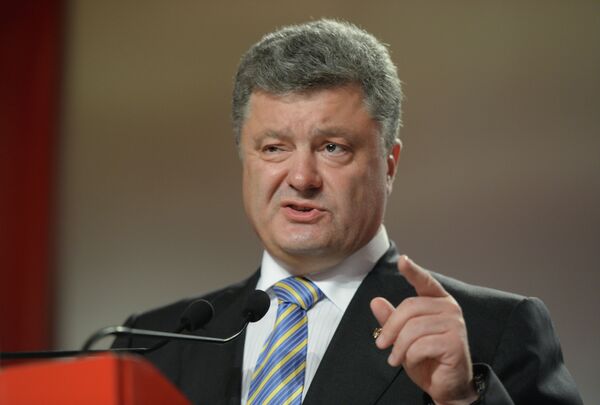MOSCOW, May 26 (RIA Novosti) – Petro Poroshenko, who, with ballots still being tallied, is leading in Ukraine’s presidential race, has said that he intends to spearhead the creation of a new security framework that would replace the Budapest Memorandum.
The Memorandum on Security Assurances was signed in Budapest on December 5, 1994 by Russia, Great Britain, the United States and Ukraine as part of an agreement on Ukraine’s accession to the Treaty on the Non-Proliferation of Nuclear Weapons.
Under the memorandum, Russia, Great Britain and the United States reaffirmed their commitment to Ukraine, in accordance with the principles of the Final Act of the Conference on Security and Cooperation in Europe (CSCE), to respect the independence, sovereignty and existing borders of Ukraine.
Russia, Great Britain and the United States reaffirmed their obligation to refrain from the threat or use of force against the territorial integrity or political independence of Ukraine, and that none of their weapons will ever be used against Ukraine except in self-defense or otherwise in accordance with the Charter of the United Nations.
Russia, Great Britain and the United States reaffirmed their commitment to Ukraine, in accordance with the principles of the CSCE Final Act, to refrain from economic coercion designed to subordinate the rights of Ukraine to its sovereignty in an effort to secure advantages of any kind.
Russia, Great Britain and the United States reaffirmed their commitment to seek immediate United Nations Security Council action to provide assistance to Ukraine, as a non-nuclear-weapon state party to the non-proliferation treaty, if Ukraine should become a victim of an act of aggression or an object of the threat of aggression in which nuclear weapons are used.
Russia, Great Britain and the United States agreed to consult with each other in the event a situation arises that raises a question concerning these commitments.


